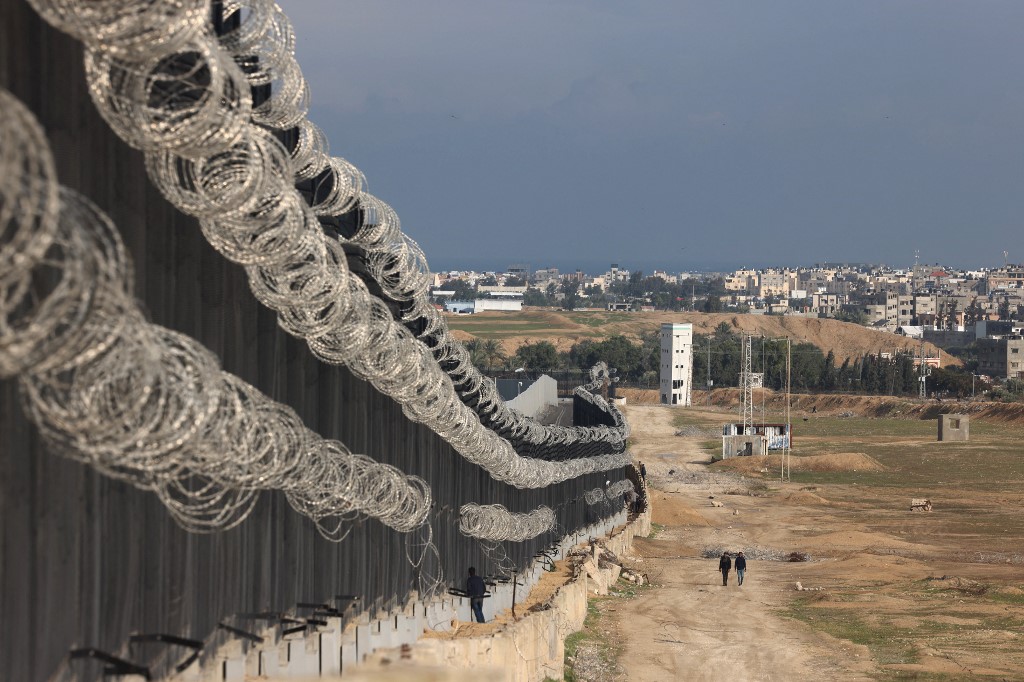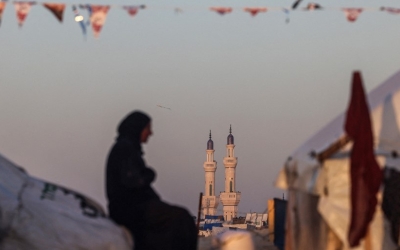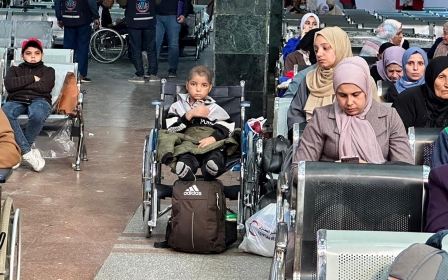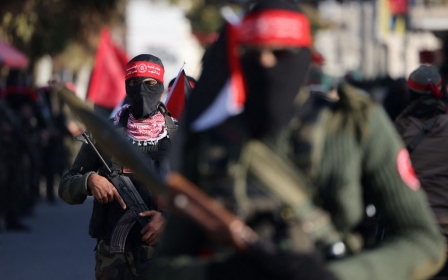War on Gaza: Palestinians in Egypt struggle to survive after fleeing Israeli attacks
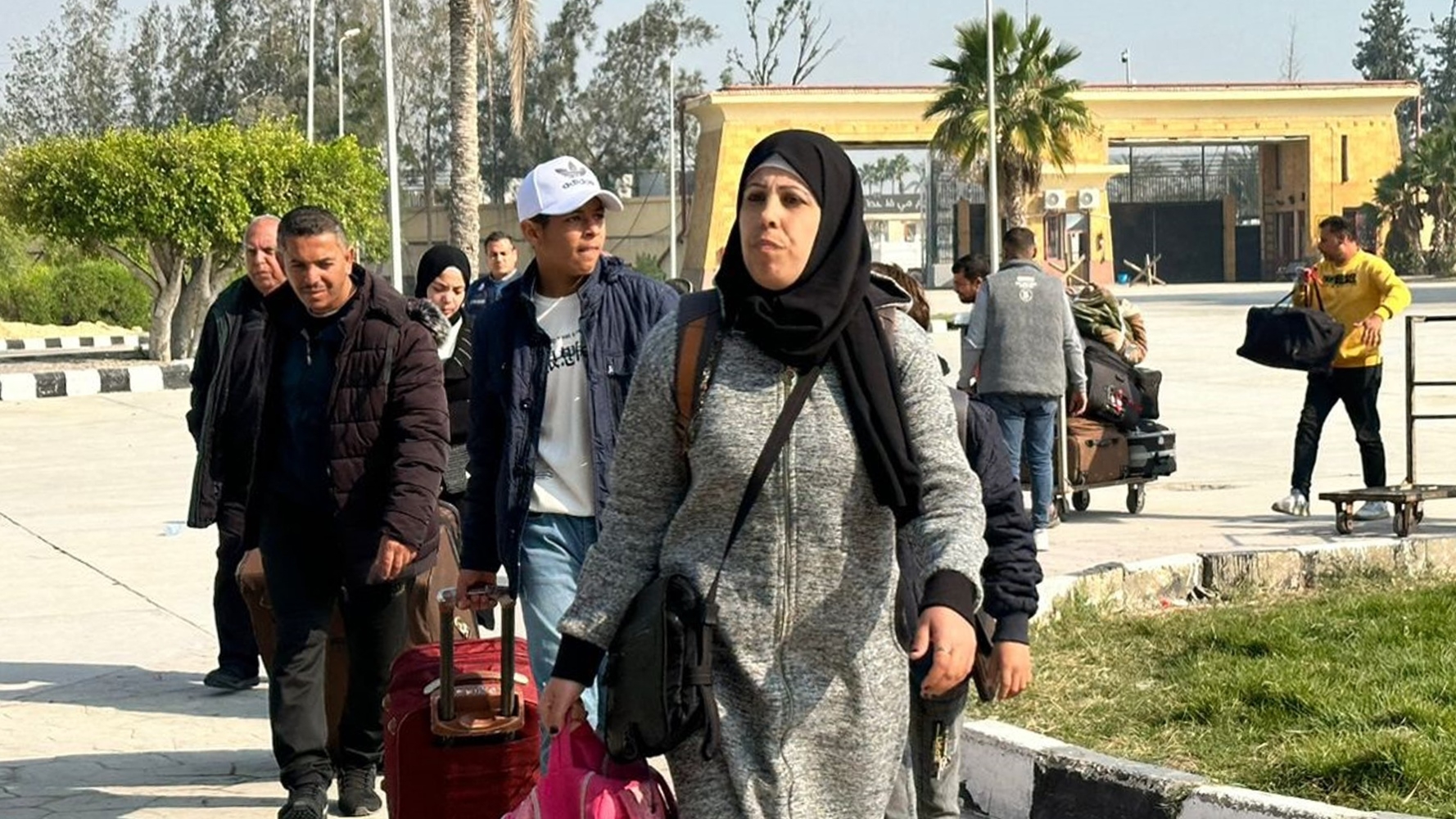
For the past seven months, the overwhelming majority of Palestinians in Gaza have been trapped in the besieged territory, trying to avoid the wrath of the Israeli military.
More than 34,000 Palestinians, most of them women and children, have been killed by the Israeli military since October.
Besides bullets and bombs, the people of Gaza are also suffering from the effects of Israel’s siege on the territory, which has severely reduced the flow of food, medicine and other essentials.
Those who can afford to - and can live with the prospect of never being able to return to their homes - have passed through the Egyptian border and are now seeking refuge there.
While no exact number is available, thousands of Palestinians have fled to Egypt since the war started.
New MEE newsletter: Jerusalem Dispatch
Sign up to get the latest insights and analysis on Israel-Palestine, alongside Turkey Unpacked and other MEE newsletters
Many were able to move to other countries but those without visas to travel onward have remained in Egypt.
The majority of Palestinians from Gaza in Egypt made their way there for medical treatment, while others are students, dual Palestinian-Egyptian nationals, and residents who could afford the thousands of dollars in bribes to make their exit from the besieged strip.
But reaching the safety of the neighbouring Arab state is no guarantee that their struggles are over.
For many Palestinians, it is the start of a new kind of hardship, with their conditions worsening due to the absence of help from both the Egyptian state and international organisations.
Middle East Eye has spoken to a number of Palestinians in Egypt, who have requested that pseudonyms be used, as revealing their identities could imperil their continued presence in the country.
Struggling with employment
Hamid, a 42-year-old father of three, managed to flee Gaza to Egypt after paying a $17,500 “coordination fee”.
His entry into Egypt was coordinated by the Ya Hala travel agency, a company with links to Egypt’s security establishment, which holds an effective monopoly on permits for Gaza’s residents trying to leave.
'I think it should be illegal to also let these Gazans struggle after everything we went through'
- Mohammed, Palestinian refugee in Egypt
The conditions of his “temporary” visa mean he cannot apply for residence status or register as a refugee.
As a result, he could not sign his children up for schools in Egypt and he was unable to work himself.
“Our living conditions are terrible,” he told Middle East Eye, adding: “I am using all my savings and just hoping that this war ends before I run out of money. We are on a very tight budget because we have no end date.”
Hamid said that other Palestinians from Gaza who he knows do not have enough money to afford food.
“I am very disappointed with the world,” he said.
Hamid said that Palestinians who fled earliest got the most help, as there was a greater feeling of solidarity for their plight.
He explained that landlords would reduce the rents of Palestinians from Gaza but that, in the months since the war started, that early enthusiasm has waned.
Middle East Eye has seen Facebook listings, in which Egyptian landlords specifically include the statement "No Palestinians" in adverts for their lets.
Those who can have decided to work illegally, or register small businesses using the name of an Egyptian friend or family member.
Mohammed, for example, set up a restaurant selling fast-food dishes from Gaza to make ends meet.
“I had no option but to trust an Egyptian friend. I paid all the expenses to start this business hoping I can have a stable source of income,” he said.
“Nothing is in my name, which is not very smart but I could do nothing about it. A lot of Gazans ask me to give them jobs.
“I sometimes let them work without a contract and just give them money daily because I feel terrible for them.
“I know it is illegal, but I think it should be illegal to also let these Gazans struggle after everything we went through.”
Accessing medical treatment
Lack of employment is just one hardship facing those who have fled Gaza. There’s also the issue of healthcare, which is a pressing concern for refugees who have suffered injuries.
Samar, a 39-year-old mother, said she fled to Egypt with her two children but that her husband remains in Gaza.
Her 16-year old daughter was wounded during the war but was not able to get a medical transfer to Egypt because her injury was not classified as critical.
The teenager still has three shrapnel pieces in her left leg.
“I went to hospitals in Egypt asking if they could help my daughter and remove the pieces of shrapnel,” she told Middle East Eye.
“But they refused to treat her saying that she came into Egypt through private coordination, so they cannot treat her for free like the injured Gazans who were medically transferred to Egypt.
“She is basically being punished for paying to exit a war.”
Samar used to work as a teacher at a UN school in Gaza City and still gets paid monthly but the sum is not enough to cover her needs.
Her husband could not afford the fees needed to flee to Egypt so decided to stay in Gaza but has lost his job since the start of the war.
The money from her job as a teacher must cover not only her expenses in Egypt but also her husband’s expenses in Gaza.
“In Egypt, I have to pay the rent, bills, and groceries. We left Gaza with almost nothing. I had to buy a lot of basics when we first arrived in Egypt,” she said
“I used my savings for the coordination fee and now I ended up not having enough to pay for my daughter’s operation.”
Education
To ensure Palestinian children do not fall behind in their studies, a number of schools in the occupied West Bank have offered remote learning courses.
However, the waiting list for these courses is long as so many children have now fled.
Samar registered with the Palestinian embassy in Cairo as soon as she arrived two months ago in order to sign her children up for classes.
'Another friend went back after three months in Egypt because he thought he would rather starve in Gaza than in Egypt'
- Hamid, Palestinian in Egypt
“We are still waiting. My experience with the Palestinian embassy has been terrible,” she said.
One lifeline has been the institutions associated with Al-Azhar, which is the highest Sunni Muslim authority in Egypt.
It has allowed Palestinians to join the institution free of charge.
The Palestinians Middle East Eye spoke to said they were living with a permanent sense of insecurity and uncertainty.
Hamid said that one family he met had decided to return to Gaza when their landlord evicted them for not being able to afford the rent.
“Another friend went back after three months in Egypt because he thought he would rather starve in Gaza than in Egypt. He ran out of money and could not work.”
While some Egyptians have worked to raise money for Palestinians in need, the refugees say the well wishers’ efforts, while well appreciated, have not been enough, according to Samar.
“We need it organised now on a wider scale by the Palestinian and the Egyptian authorities,” she said.
Middle East Eye delivers independent and unrivalled coverage and analysis of the Middle East, North Africa and beyond. To learn more about republishing this content and the associated fees, please fill out this form. More about MEE can be found here.


